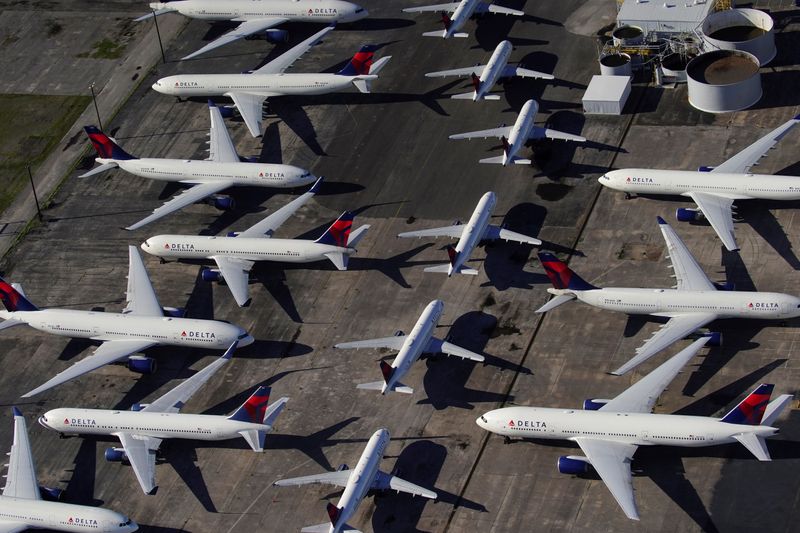This post was originally published on this site
https://i-invdn-com.akamaized.net/trkd-images/LYNXMPEG3G1GD_L.jpg
(Reuters) – U.S. airlines are estimated to be sitting on more than $10 billion in travel vouchers that should have been cash refunds from canceled flights, a group of senators released on Friday.
Many U.S. airlines are cancelling between 60% and 80% of their flights, and under federal law passengers on those flights are entitled to full refunds, Senators Ed Markey, Elizabeth Warren and Richard Blumenthal said in a statement.
“However, many airlines have been obfuscating this right by offering travel vouchers as the default option, requiring passengers to take burdensome steps to request refunds instead,” they said.
The Democratic senators had asked Alaska Airlines (N:ALK), Allegiant Air, American Airlines (O:AAL), Delta Air Lines (N:DAL), Frontier Airlines, Hawaiian Airlines (O:HA), JetBlue Airways (O:JBLU), Southwest Airlines (N:LUV), Spirit Airlines (N:SAVE), Sun Country Airlines, and United Airlines (O:UAL) to each provide details on their refund policies during the pandemic.
In the airline replies, which were reviewed by Reuters, most did not share the total value of the travel vouchers and credits they have issued during the pandemic.
But JetBlue, which has 5.5% of the domestic market share, said it issued over $20 million per day of travel credits to consumers in the first few weeks of March.
“Assuming a similar trend throughout the industry over the last month, this figure could mean that the airlines are sitting on more than $10 billion in customer cash,” the lawmakers said, while inviting airlines to provide more information if they dispute the figure.
According to their findings, airlines are offering cash refunds when the company itself cancels a flight, as required by the U.S. Transportation Department, but only Allegiant and Spirit are offering refunds to passengers who voluntarily cancel their own tickets.
“None of the biggest carriers with the most revenue, including United, American, Delta, and Southwest, offer similar refunds,” it said.
In their replies the airlines generally said their policies are consistent with DOT guidelines.
Sun Country, a Minnesota-based ultra low cost carrier, said refunding all of its non-refundable tickets outside of DOT guidelines “would put the company’s future at risk.”
Among replies by larger carriers, Delta said it had processed over 1 million refunds totaling more than $500 million in March, for passengers that had requested a cash refund for flights that Delta canceled or changed.
American Airlines said in its reply that over 90% of the customers who were offered a refund for flights the company itself canceled chose that option over a travel voucher.
If passengers do not specifically request a refund, they are issued a travel voucher. While many airlines have made the vouchers valid for up to two years, some airlines’ vouchers expire within one year.
U.S. airlines are set to soon receive $25 billion in government payroll aid, much of it in the form of free cash, and can also apply for another $25 billion in government loans to help them weather the coronavirus downturn.
Two weeks ago, the Transportation Department issued a notice to airlines reminding them they are obligated to refund tickets when they cancel a flight or make a significant flight schedule change that passengers opt not to accept, but did not take any immediate action against airlines.
The department said given the massive crisis it “will exercise its prosecutorial discretion and provide carriers an opportunity to become compliant before taking further action.”

